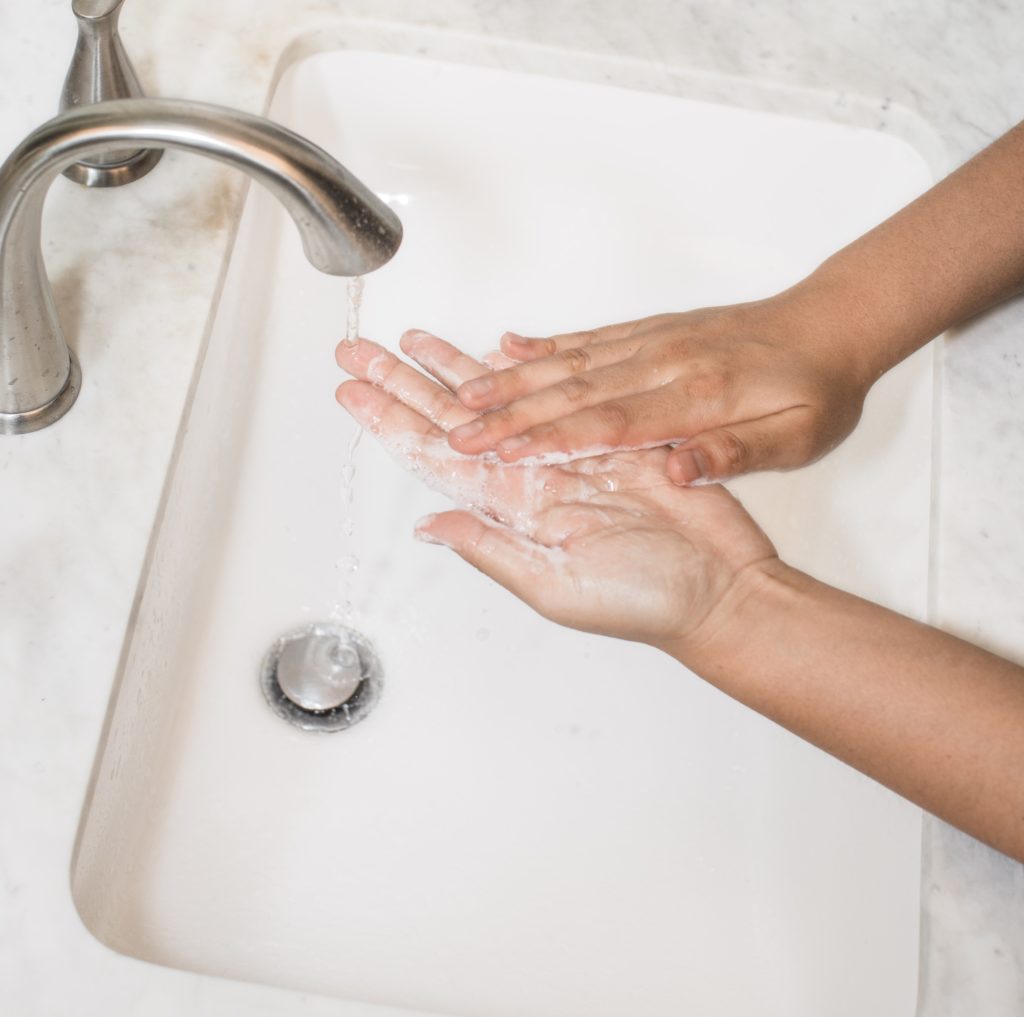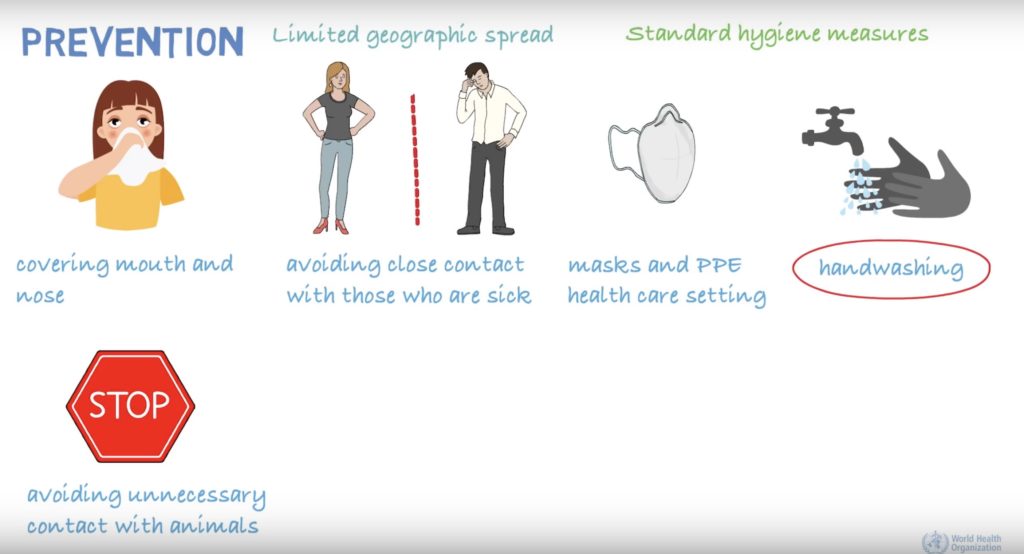Coronavirus (COVID-19), is on the minds of basically everyone worldwide right now, and that goes double for parents. Especially with spring break coming up, and lots of family travel plans in the works — and brand new warnings to prepare to plan for our lives to be disrupted as officials look to contain the spread of this respiratory infection.
Article last updated March 13, 2020
That said, it’s incredibly important not to panic, as every expert will tell you. (And as someone who lived through the stockpiling and subsequent shortages of Cipro during the post-9/11 Anthrax scares in NYC, I wholeheartedly support the no-panic perspective.)
Please know that 80% of cases involve mild symptoms, and the bulk of the danger of the virus is toward immuno-compromised patients including the elderly, and those with immunodeficiencies or heart/lung diseases. Not that this is a relief to those suffering from asthma or Diabetes (and that includes people in my own immediate family), but it’s good to have the facts.
There have been very few cases involving any children under 10 at this point.
To be clear, the other 20% of cases are not anything to ignore. But whatever your risk factors, or those of your family members, we all need to be looking at the most reliable, trustworthy, up-to-date resources so we can make informed decisions — and, perhaps as importantly, help stop the spread of dangerous misinformation.
So let’s all pledge not to take as gospel any social media threads with dubious screenshots of quotes from un-attributed “experts.” And definitely not form opinions from incendiary talk radio hosts and shock jocks who profit from whatever fear-mongering they can create.
With that, here are the best sites and resources that can help keep you properly informed about what Coronavirus is, how it’s spread, who it’s impacting, and how to protect yourself and your family.
Related: Here’s the right way to teach kids how to wash their hands
 Image: Curology on Unsplash
Image: Curology on Unsplash
For the Best Information about Coronavirus: The WHO website
The WHO is a standard-bearer for accurate and informative information about health concerns of all kinds, so not surprisingly, the World Health Organization Coronavirus pages are helpful, clear and comprehensive. I would consider it the best place click first. Especially for those of us who aren’t scientists ourselves. (And for those of you who want a second opinion beyond US government, this is the site to visit.)
The rolling updates are particularly useful if you’re the type to keep checking back. But really, the site has so much information all well-organized, whether you’re looking for updates on research activities, or a detailed Coronavirus FAQ on basically everything.
A good place to start however is the page on advice for basic protective measures and prevention. (TLDR; wash hands, wash hands, wash hands!)
For General Information about Coronavirus: The CDC website
(Updated 3/2: I’ve downgraded the CDC website from “the best place to start” after some frustrating reports about credibility and rapid response. This may be political, and no fault of the incredible scientists and researchers there. )
I know people who approach any government-run website with some skepticism, but I think the Center for Disease Control website is a decent resource. It’s a very user-friendly site, with simple information in categories like what the symptoms are and how to protect yourself. There’s also a confirmed Coronavirus case tracker for the US that’s updated every couple of days.
NOTE: Just know that there is now some evidence that it’s not being updated with regularity, that it’s understating the number of tested cases, and that the CDC is withholding important information from physicians.
If you plan to travel, visit their global travel warnings page. which breaks destinations down into warnings (avoid all non-essential travel), alerts (postpone if you’re in a high-risk group), and watches (no need to postpone travel, just practice usual precautions).
And if you do believe you may be infected (again, the likelihood is minute in the US right now), there’s a CDC page about what to do to take care of yourself and protect others.
For Detailed Data about Global Coronavirus Cases: Worldometer
If you’re interested in the data about current infections, active vs closed cases, and mortality rates by demographic, Lisa found this site. I just warn you that if you’re easily freaked out, this may not be the best site for you. On the other hand, if you dig down into the section on age, sex, and existing condition of Coronavirus patients, it may be a relief to you.
I also like their simple breakdown of expert opinions on the Coronavirus with quotes from respected researchers, epidemiologists, and physicians.
For Trusted Information in Podcast Form: EPIDEMIC with Dr. Celine Gounder and Ronald Klain
If you’re having anxiety this may not be the podcast for you, but EPIDEMIC is a new weekly podcast on Coronavirus/Covid-19 hosted by infectious disease specialist and epidemiologist Dr. Celine Gounder, along with President Obama’s Ebola czar from 2014-15 (and one of my favorite Twitter follows). The podcast aims to help you understand the latest science, the bigger context, and bring you diverse angles from history and anthropology to politics and economics—all to help us better prepare, care for ourselves and our families, and our communities.
For Up-to-Date Info from Trusted Individuals: Good Twitter Feeds to follow
Twitter is a great source for accurate breaking news, excellent analysis, and reasonable opinions — if you know who to follow. While there is arguably an exhaustive list I could make here, I’ve included just a few accounts that I find to be accurate, apolitical, helpful, and that update their feeds fairly frequently with helpful information.
@ScottGottliebMD – Dr. Scott Gottlieb, former FDA Commissioner
@NYThealth – The NY Times account for health news from the science desk
@WHO – The World Health Organization account
@DrTedros – Tedros Adhanom Ghebreyesus, WHO Director-General
@RichardEngel – Richard Engel, Chief Foreign Correspondent for NBC News (On a personal note, I adore him!)
@DrEricDing – Dr. Eric Feigl-Ding, Epidemiologist, Public Health Scientist at Harvard’s Chan School of Public Health
@pw_cunningham – Paige W Cunningham, WashingtonPost author of The Health 202
@DrNancyM_CDC – Dr. Nancy Messonnier, CDC vaccine expert
@davidalim – David A Lim, Politico Health Reporter covering the FDA and coronavirus lab testing
@laurie_garrett – Laurie Garrett, Pulitzer-winning science author, former Sr Official at the Council on Foreign Relations
@SarahKliff – Sarah Kliff, NY Times Health Policy journalist, covering Coronavirus exclusively right now
@KHNews – Kaiser Health News, an independent healthcare publication (not associated with the insurance company)
@NPRHealth – NPR Health News
Also, the best hashtags to follow are #coronavirus and #COVID19. But don’t check in every four minutes and make yourself crazy, okay?
For the Best Coronavirus Information Specifically for Parents
Phew, there have been so many terrific info pages, podcasts and articles up since we first posted this article and we’re happy to share a few great ones as we find them:
 NPR/Malaka Gharib
NPR/Malaka Gharib
How to Talk to Your Kids About Coronavirus if They’re Feeling Anxious: Spawned Parenting Podcast
Yes, this Spawned Podcast Interview with Dr. Kenneth Ginsburg is our own, but it’s that good. It’s reassuring, specific, hopeful, and helpful, and one listener called it “the best podcast I’ve heard on this subject or on parenting, period!” So, wow.
Coronavirus and Parenting: What you Need to Know: NPR Life Kit Series
This NPR Q/A article by Anya Kamanetz (a favorite parenting author around here) and Cory Turner is very helpful, and includes a short podcast to answer some of your most pressing questions.
How to explain Coronavirus to Kids in Zine Form: NPR Printable Comic by Malakais Gharib
I included this wonderful Coronavirus comic from NPR, illustrated by Malaka Gharib (I Was Their American Dream) in our list of resources on our latest podcast — see a panel above. It’s designed to be printed and folded into a zine and I love that it’s straightforward, clear, and reassuring.
How to explain Coronavirus to Kids in Video Form: Who Coronavirus YouTube Video

This YouTube video created in mid-January is an excellent primer on what the Coronavirus is, who it impacts, how it spreads, and likely origins. If you have older kids, they may find it very helpful; with younger kids, just take a look first so that you can be sure you’re not overwhelming them with scientific information.
And remember, with younger kids, the best way to have hard talks with your kids is to ask them what they know, then let their own questions and concerns guide your answers.
For Dispelling Misinformation about Coronavirus: Snopes.com and The WHO Myth Busters Page
If you’ve heard that you can kill the virus with a hand dryer, or saline nasal rinses can help you prevent infection, this myth busters page from The World Health Organization (not related to the show) is a must-visit.
Snopes, as you might imagine, has a growing cache of responses to Coronavirus rumors and links to helpful articles. For example, NO, experts did not predict that New Coronavirus could kill 65 million people, and NO, subsaharan Africans are not genetically immune to the virus.
For Travel Advisories: The State Department Website
The travel advisories at travel.state.gov are the best resource for up-to-the-minute, official advisories that are issued for reasons beyond health concerns, and you should always check alert levels before traveling abroad anyway. Click “date updated” in the far right column to see the most recent advisories first. They range from “Level 2: Practice Increased Caution” for S Korea, Japan, to the “Level 4: Do Not Travel” issued for China.
They’ve also created a dedicated State Department Coronavirus advisory page which is mainly focused on travelers to and from China and Hong Kong, including US Embassy contact information.
Top image:Alexandra Gorn via Unsplash




CDC moved a patient to Salt Lake City and they are not listed on the University of John Hopkins map.
https://www.abc4.com/news/top-stories/utah-covid-19-patient-speaks-out/
https://gisanddata.maps.arcgis.com/apps/opsdashboard/index.html#/bda7594740fd40299423467b48e9ecf6
Personally, from what I have seen of CDC they are inept and can’t be trusted